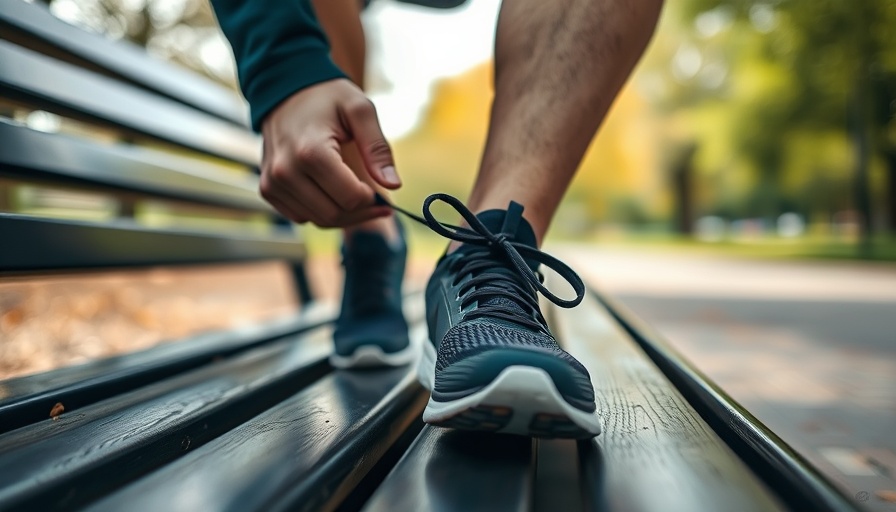
Breaking Free from Negativity: A Path to Movement
How often do we find ourselves engaging in daily conversations filled with excuses? “I’m too tired,” “It’s raining,” or “It’s too cold.” It’s as if these thoughts act like invisible weights, keeping us from moving forward. If those phrases sound familiar, you're not alone. Many of us experience these feelings, but the first step toward change is acknowledging them.
In recent discussions around physical activity, researchers emphasize the power of mindset in overcoming inertia. Studies have shown that people who identify their barriers to exercise and actively seek to counter them often find greater success in achieving their fitness goals. One approach is to reframe those negative thoughts proactively. Instead of accepting fatigue as a valid excuse, consider the personal choice hidden beneath it: “I choose to take a step today.”
Creating Your Personal Movement Blueprint
Want to move more but don’t know how to start? It’s time to craft your movement plan. Grab a piece of paper and jot down three crucial elements:
- Why you want to move: Identify personal motivations that resonate with you, whether it’s to boost your mood, improve health, or simply feel fit.
- How you’ll move: Outline types of activities you enjoy or want to try—maybe a dance class, swimming, or hiking.
- When you'll do it: Set aside specific times in your week; consistency is vital.
These steps not only provide clarity but also create a contract with yourself, elevating your commitment to physical activity.
The Impact of Social Dynamics on Your Fitness Journey
In contemporary society, we’re more connected yet often feel isolated, especially regarding fitness. Social connections can significantly influence how often we engage in physical activity. Studies show that group workouts or community sports can enhance motivation and accountability. Imagine inviting friends to join you on a biking expedition or at a local boot camp; you're not just exercising; you're nurturing bonds and creating lasting experiences.
Challenges to Expect and Overcome
As you strive to incorporate more movement into your routine, anticipate facing challenges. For many, these might include time constraints, lack of motivation, or even self-doubt. Understanding that these obstacles are common can prepare you mentally for the journey. Overcoming them requires a blend of determination and flexibility. You may need to adjust workouts or find creative ways to fit physical activity into your life, like opting for a bike ride instead of a drive for errands.
Future Predictions: The Evolution of Personal Fitness
With the increase in health awareness, we may witness an evolution in how communities support physical activity. Trends show a rise in shared spaces designated for fitness and wellness—a significant shift toward embracing diverse movement forms. This could mean more parks with exercise equipment, apps connecting individuals for joint workouts, or workplaces implementing fitness programs to promote a healthier culture.
Decisions That Empower You to Move
The choices we make daily can empower us to lead active lives. Instead of defaulting to comfort, challenge yourself to embrace movement even when it requires effort. Consider starting small—perhaps a 10-minute walk can gradually bloom into longer, more exciting workouts. By placing your well-being at the forefront of your decision-making, you cultivate an environment ripe for personal growth.
Embracing a New Mindset for Action
Let’s face it: changing habits is hard, especially when comfort beckons. It’s vital to adopt a mindset that celebrates progress, not perfection. Approaching fitness as a journey—with ups and downs—can reduce the pressure associated with exercise and reinforce a sense of achievement in even slight movement. It’s not about how far you go but rather that you are moving at all.
So, are you ready to embrace your fitness journey? With a structured plan, positive mindset, and community support, incorporating movement isn’t just a goal; it’s a fulfilling lifestyle. Take that bold first step today; every choice you make is a step closer to your ideal self.
 Rij toevoegen
Rij toevoegen






Write A Comment